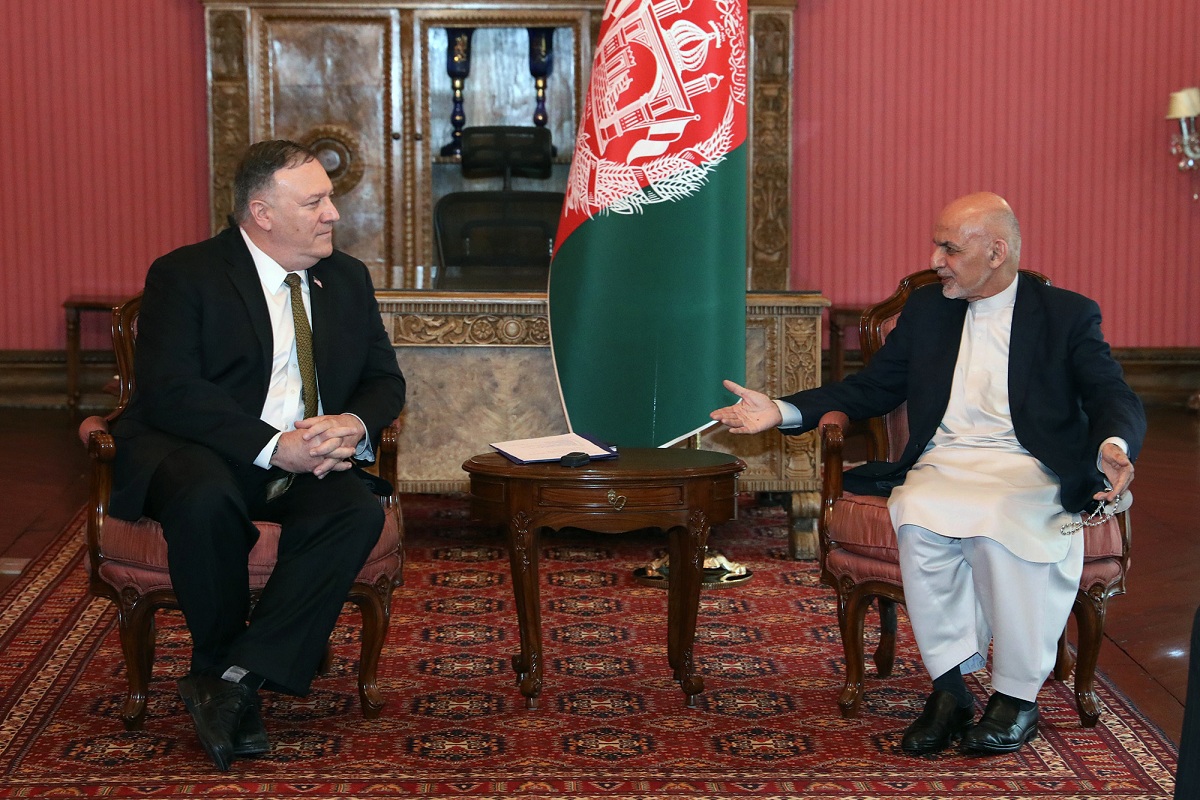Afghanistan receives over 8,000 foreign tourists in two years
More than 8,000 foreign tourists visited Afghanistan over the past two years, local media TOLOnews reported Saturday, citing a government official.
While the development is wholly unrelated to the dreadful illness, the forward movement in geopolitics is unmistakable ~ two wholly unrelated quantities.

(Press Office of President of Afghanistan / AFP)
Amidst the apocalyptic scenario the world over, it is mildly reassuring that there is a silver lining across the rugged terrain of Afghanistan, fairly acutely afflicted by the coronavirus pandemic. While the development is wholly unrelated to the dreadful illness, the forward movement in geopolitics is unmistakable ~ two wholly unrelated quantities.
A three-member Taliban team is in Kabul to begin the process of prisoner exchange, indeed an imperative that is pivotal to talks between the militant group ~ one-time rulers to boot ~ and negotiators named by the Afghan government to end the country’s 18-yearold civil war. It would have been deeply unfortunate if the peace talks, also referred to as the “intra- Afghan dialogue”, had floundered on the issue of releasing prisoners.
The talks were envisaged in an agreement signed between the United States and the Taliban in Doha; it also stipulated an exchange of 6,000 prisoners held by the Afghan government and the group. “Our three-member technical team will help the process of prisoners’ release by identification of the prisoners, (and) their transportation,” is the assurance advanced by the Taliban spokesman, Zabihullah Mujahid, on Wednesday.
Advertisement
Clearly, both the government and the Taliban are inching towards a compromise, though President Ashraf Ghani’s administration was not invited to the Doha conference. The United States and the militants were the dramatis personnae at the negotiating table. We do not know if America, currently wallowing in the mire of the pandemic, had a role in hastening the process of prisoner-release.
Yet we do know that the walk to freedom had been a contentious issue so far as starting the peace talks was concerned primarily because the Taliban and the Afghan government have differed over the process and timing of the exchange. It is a measure of the inherent differences that the exchange has been preceded by weeks of going back and forth.
Happily for both sides, the critical process is set to begin with the arrival of the Taliban team in Kabul. Latest trends indicate that the Taliban will forge what they call a “kind of deal with the opposite side” and their practical work will start very shortly. The perceived progress is critical not the least because the Taliban had previously refused to speak to the U.S.- backed Afghan government directly.
The Taliban team had planned to send a larger, 10-member delegation, but the size was reduced due to the coronavirus fallout in Afghanistan. There is also a thaw in the frosty equation between President Ghani and his principal political rival, Abdullah Abdullah. The political consensus is critical in terms of governance in a chronically fractious country.
The release of prisoners will be a watershed development in Afghanistan, although many Afghans will continue to have misgivings about the return of the Taliban to the mainstream.
Advertisement